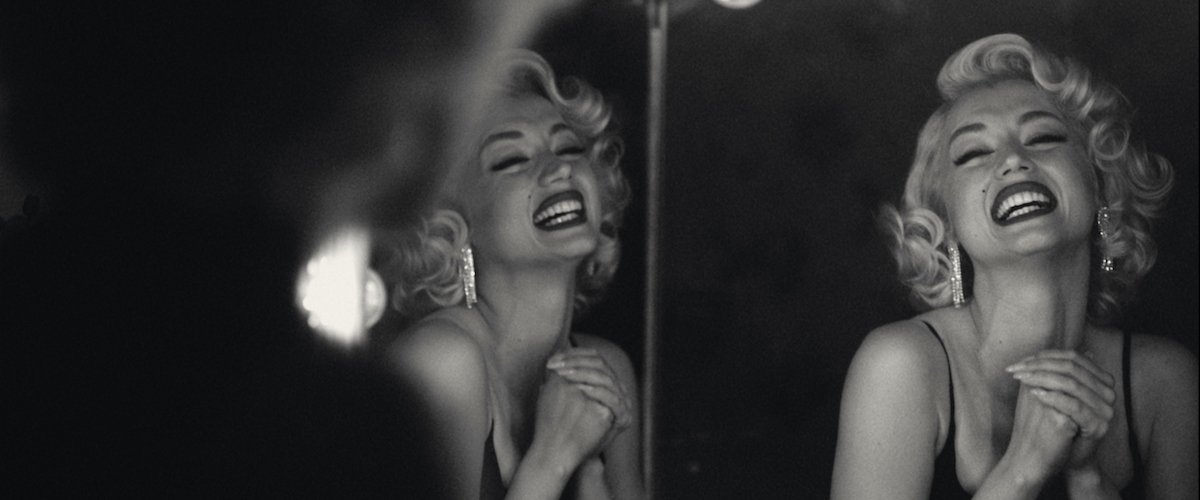Film Review of “Blonde”
Once again, I’m here to tell you not to watch a movie. It’s starting to feel like the theme for movies in 2022. It’s strange, but like with “The Banshees of Inisherin” and “Tar” and “Triangle of Sadness,” here comes another movie that seems actively interested in:
Making you hate the characters and any real-life figures they might be based on,
Making you actively uncomfortable watching the film, and lastly,
Making you wonder what the filmmakers are trying to say with all of their efforts and expense and the collective work of all of those involved, and
Wondering if the film is actually some kind of elaborate and expensive elongated joke on the industry and each individual viewer.
So, I ask: why watch? No one would actually make a movie about Marilyn Monroe and then portray her and everyone around her in this way, right? You’re giving your time and attention to something that only makes the world a darker, meaner place. And what’s the “theme” here? What are we supposed to “learn” from watching this?
“Blonde” is ostensibly a movie about Marilyn Monroe. You find this out because they use her name and likeness and also call her “Norma Jean” and include aspects of a real person’s life in the movie. Going in, and knowing all the controversy, I’d assumed they would be coy and not make it so obvious that this is supposed to be an account of a person’s life. Like I thought they might call her “NJ” throughout and not use real names.
But there is also another layer of farcical fiction on top of the “real.” Events are heightened to the point of absurdity—and, in some cases, just invented or changed to make them even more horrible and devastating.
If you’ve always wanted to watch a beautiful woman being tortured and maligned for two and a half hours, this film was made for you. “Monroe” is put through the ringer, tortured by her insane mother, passed around by callous men like a dime-store hooker, and generally treated like trash by everyone she meets. All the men are mean and only want her for one thing, and all the women are spiteful and hate her because she’s pretty. What, was this movie written by a ten-year-old boy?
And, when pressed, those involved in the film actively distance themselves from it by saying it’s a work of fiction. According to IMDB, the director, Andrew Dominik, filmed what he called an "avalanche of images and events" instead of making a coherent and thoughtful film. No narrative, just a bunch of scenes of Monroe being humiliated. The “director” also stated the movie will “offend everyone” and that he’s “not concerned with being tasteful.” Just what you want to hear from a filmmaker, right? If he’s not interested in putting together a cohesive, truthful story, why should the viewer be interested in experiencing it?
Joyce Carol Oates, who wrote the 2000 book upon which the film is based, famously said that she had “no particular obligation” to the facts, despite referencing real people in her novel, according to The Guardian. But doesn’t she? Shouldn’t she portray this real person with as much honesty and truth as possible? If the subject’s life is interesting enough as it is, there would be no need for embellishment or fiction.
Along the same lines, would she find it sad if someone wrote a novel about a writer named Joyce Carol Oates where all kinds of crazy and historically-inaccurate things happened? Would the real-life Oates feel as cavalier? Oh my God why is that character Joyce Carol Oates having dinner with five monkeys? Why is she swimming in a lake of Jell-O? What is she doing…oh, my God, that’s just gross. Why is she doing that? Of course, the writer of the book would have no “particular obligation” to facts, even though the writer is writing about a real person named Joyce Carol Oates. Go crazy!!
While watching this, I got the distinct impression that those involved don’t really like Marilyn Monroe. It comes across in the way she’s portrayed, but also in the leering and mocking treatment she receives from everyone else in the film. It’s like when someone makes a movie about something they hate, or a director is forced to make a film he doesn’t want to be making. Allegedly, Joel Schumacher didn’t want to be involved in making “Batman & Robin” and it really comes through in the final product. According to IMDB, “Schumacher, who blamed the studio for forcing him to do a sequel instead of an origin story, later accepted his faults and shared the blame for making such an embarrassing and nonsensical film.”
Ana de Armas does a fine job and looks the part, although her Cuban accent pokes its head up fairly often during the speedier parts of her breathy performance. My only issue with her is that I liked my other memories of her better, especially her role in Blade Runner 2049, and now this portrayal will be forever mingled in my mind with her other work. It’s difficult to watch someone be tortured for 2.5 hours and not feel for them—but also, you have to remember that de Armas actively chose to appear in this blatant character assassination of a beloved American icon. With her presence, the actress is actively endorsing this particular take on Monroe’s life.
Check out the Real vs. Reel breakdown of the movie, which goes into detail on what parts of the movie were based on real life and which ones (turns out most of it) were invented or “enhanced” in a way to make them horrible and unpleasant.
There were a few laugh-out-loud moments of over-the-top silliness in this movie, and I have to assume they were unintentional. The director, who should be gently encouraged to find another profession, makes some “interesting choices,” as they say in the industry. While I won’t include spoilers, here are a few things to watch for:
During the excruciating, three-minute-long scene where Monroe is “getting friendly” with the President, the series of images on the little black and white TV are hilarious. They include a rocket lifting up and preparing for launch—GET IT?—and later the Washington Monument falls over and crashes. So funny and witty and subtle!
Also, this is the same scene where the most famous woman in the world at the time is treated like a disposable piece of meat, carried into the room by JFK’s Secret Service folks and then abused by the president and left beaten and injured. No one says anything or tries to help. Oh boy the whole thing is such a hoot!
All the baby scenes are just weird and creepy and gross. Don’t even get me started on the way the abortion scenes are treated.
Apparently the entire population of New York City was in attendance at the filming of the famous “subway grate” scene. Seriously, was every leering, cruel man east of the Mississippi there that day?
One visually interesting shot is the waterfall part of the weird and awkward three-way. No, I’m not talking about spaghetti over chili with cheese. It’s actually neat the way the director overlays the waterfall with the side of the bed.
The recurring use of flying ash from an early scene of a wildfire in Los Angeles is interesting.
Why is the director doing those weird “ZOOMS” whenever the phone rings? Is she “scared” to answer the phone so he treats the ringing phone like a monster in a scary movie?
Also, look out for some WEIRD CGI of the men in the crowd at one of the movie premieres—it looks like the director used CGI to make the men’s mouths larger and more elongated to make their jeers and screams even creepier.
Near the end she’s freaking out and feeling persecuted. She gets up out of bed to go look out the window and there’s a man standing silent in her room. Reminded me of the ghost images from “Tar.”
In the end, you know what is coming and it seems like the filmmakers are saying that it’s the only recourse for the woman. On some level, you’re rooting for it to finally happen so that the pain and torture will be over—and how crazy is that? On some level the viewer is rooting for the character to take their own life. It’s sick. Though, frankly, I’m surprised the director didn’t also include scenes of male police and male witnesses and male coroners leering at the dead body or taking photos of it or otherwise desecrating the memory of the fallen woman. Maybe those scenes are being saved for the sequel. “Blonde 2: Even Blonder. Two more hours of degrading a Hollywood legend.” Can’t wait.
The film feels like it’s railing against the life-long exploitation of Marilyn Monroe…by exploiting her for two and a half hours. That feels hypocritical to me. It feels like the filmmakers and those responsible for the film are saying something along the lines of “men are horrible —just look what they did to this beautiful person.”
But then the director goes and does exactly that to the character for the entire length of the film. Just take my advice and skip this one. 2 out of 10 for the nonsensical storytelling and the flying ash and waterfall scenes ONLY.
Or just skip it and go for a walk. OR watch “Some Like it Hot” and experience the real actress for yourself. And don’t worry—there is no Marvel-style “after credits” scene where Monroe is beaten with whips and a large sturgeon. Though, you know, it wouldn’t have surprised me.


